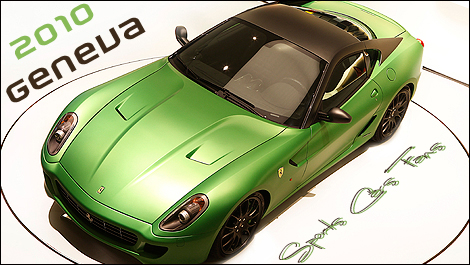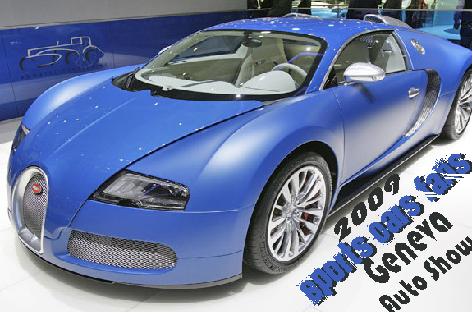Review: 2009 Mini Cooper S Convertible

Back in 2001, BMW revived the Mini brand by unveiling a new Cooper model that updated the classic English design of the original while growing the car's trademark size just enough to fit the engineering, safety equipment and conveniences that modern drivers demand. It was a perfect play, and if Mini sales haven't exactly set the world on fire here in the U.S., that's only because the brand has been alone in teaching American car shoppers what Europeans already know: Premium small cars are worth every penny. In other words, Americans generally associate the value of a vehicle with its size – the more you pay, the larger a vehicle you should get. The Mini Cooper exists in stark contrast to this notion.
Fast forward to 2009 and we're already a couple of years into the second generation of the modern Mini Cooper, also known as the R56. The redesigned hatchback was joined last year by the long-wheelbase Clubman and the R56 lineup is now complete with the arrival of the convertible model. Our tester, a 2009 Mini Cooper S Convertible, will challenge the notion that value equals size. Why? Aside from opting for the high-performance John Cooper Works trim, the convertible is the most expensive model in the Mini lineup, and the S model makes it even more so. The total tally for our tester, including $650 in destination charges, is $32,700. Read on to find out if the Mini Cooper S Convertible is packed with enough value to prevent its sticker shock from sending you into cardiac arrest.
Now based on the second-gen R56 platform, the Mini S Convertible is 2.3 inches longer than the model it replaces, though at 146.2 inches long it's still the second smallest car sold in the U.S behind those Lilliputian Smart cars. The freshened front end is both taller and more rounded, concessions made to comply with new crash and pedestrian safety standards around the world, but the new Mini is still an unmistakable descendant of Sir Alec Issigonis' original design.
The S Convertible is visually distinguished from the base model by an air intake at the leading edge of its hood, a unique and aggressive lower front fascia with chin spoiler, and a new lower rear fascia with a pair of chrome-tipped tailpipes exiting the center. Altogether they add some edginess to the Mini's normal cheery face, and the black bonnet stripes, included in the $1,500 Sport Package, are just enough war paint to warn would-be sports convertibles that this drop-top won't turn and run at the first sight of twisties.
The interior should be instantly recognizable to fans of the first-gen modern Mini with an even larger speedometer than before placed in the center of the dash and a generously sized tachometer atop the steering column. Interior panels that match the car's body color remind us of the Chrysler PT Cruiser, but at least our tester's Interchange Yellow brightened up the cabin's mix of black rubber and silver plastic trim pieces.
The school of ergonomics was apparently out the day that the Mini's interior was designed, with usability taking an ironic back seat to style. We love the toggle switches that control the windows, door locks and fog lights; they feel expensive, look great and are easy to use, but they're the only controls that marry all three qualities.

The problem is there are buttons everywhere, most of which seem arbitrarily placed and oddly shaped to fit their location. The controls for fan speed and temperature, for instance, look like rollers but are just buttons that toggle on a horizontal axis, and the poor volume knob is left all by its lonesome below the pursed lips of the CD player. Apparently it just couldn't be squeezed into the bottom half of the giant speedo where the rest of the audio controls huddle together like uneaten vegetables on a five-year-old's dinner plate.
If you pay the premium for an open air experience in your Mini, chances are the only button you care about is the one that lets the sun in. You'll find it above the rear-view mirror, and moving the roof up or down takes just 15 seconds. Before you commit to full UV exposure, however, there's a neat sunroof mode that slides the cloth roof back just over the front seats. The resulting hole is XXL, definitely larger than a normal sunroof, and stretches in between the beefy-looking roof rails that attach to the windshield.



Keep the roof retracting and it will fold itself neatly into a stack that sits on top of the rear deck. This arrangement compromises rear visibility, but the vestigial back seat with legroom measured in widths of a human hair means there's no where else for the top to go. Fortunately, Mini has added a new active roll bar system that sits flush with the rear headrests. Unlike the last convertible's fixed double hoops that monopolized the rear view mirror, this new system stays tucked away until an impending flip triggers a charge that extends the bars to save the day. It's more discrete and offers equal protection, though needs to be reset by a professional after each use. As for the trunk, the folding top leaves its meager six cubic feet of cargo space alone, though the rear seats do fold forward to nearly quadruple its capacity to 23.3 cubic feet.

Mini owners, however, are used to sacrificing some trunk space, sight lines and leg room in return for that ineffable quality that makes them smile from behind the wheel. A new feature called the Openometer is designed to keep that grin going. It's an analog gauge that hangs off the left side of the tachometer and keeps track of how long your Mini convertible has motored with its top down. The outside ring counts the minutes up to 60 before being reset and lighting up an LED for every hour that goes by. The gauge resets itself after each trip, but the car's onboard computer counts your Mini's total top down time and keeps it a secret... for now. The brand is planning some social networking tools that will allow Mini owners to compare their times online, but for now the Openometer remains a solo experience.



If you're like us, the only gauge you're interested in is the tach, which waves its needle like a drum major's wand to signal each satisfying shift of the Mini Cooper S convertible's six-speed transmission. Paired with a turbocharged, direct inject 1.6-liter four-cylinder producing 172 hp at 5,500 rpm and 177 lb-ft of torque at just 1,600 rpm, this mechanical combo reminds us after each use why Minis carry a premium price tag. The clutch is perfectly weighted and its take up point defined. While the six-speed's throws are a little long, each flick is rewarded with a smooth, straight path into the next gear. There's simply no small car sold in the U.S. that can match the Mini's mechanicals, and the influence of parent company BMW can be felt through your fingers and toes.
The S motor, though small in size, is a jewel that shines when asked to perform. Just like the turbocharged, direct inject 2.0-liter that General Motors uses in various Chevy SS and Pontiac GXP small cars, Mini's mill offers way more thrust than expected and so much torque down low that we found ourselves slamming on the small but seriously capable brakes just so we could start from a stop again.
A 0-60 time of seven seconds flat may not sound quick, but the impression of speed makes up for it, especially with the top down and exhaust note free to roam. We were nervous about torque steer and turbo lag, but equal length half shafts keep the wheels clawing in the same direction and that low end torque can mask the turbo spooling up in all but first gear where there's some slight hesitation off the line.
Thanks to the generous spacing of six gear ratios, the Mini Cooper S Convertible can also cruise along comfortably at 75 mph while turning over a respectable 3,000 rpm. A curb weight of 2,855 lbs joins in the fun to help achieve 34 mpg on the highway and 26 in the city. Those are numbers that rival economy cars designed to be frugal with fuel, and this is the S model! Opt for the non-S convertible and a max of 36 mpg can be achieved while still enjoying the inherent handling prowess of a Mini.

Missing out on the S motor would be shame, though, as it adds a brutish force that was lacking in the last generation. Miss a line or flub an apex? This engine can haul you back into contention, whereas the prior supercharged model would rather you catch up in the corners. Mini also lets you defeat the Dynamic Stability Control and Dynamic Traction Control for some unsupervised fun, and a Sport button by the shifter will quicken throttle response and sharpen the steering.
Add it all up and the Mini Cooper S Convertible equals a superb driving experience, especially for a convertible. Just like its closed roof cousin, this car turns with telepathic precision, accelerates like a home run and barely cocks its head in a corner. Shakes, jiggles, shimmies and other structural defects associated with removing a car's roof are conspicuously absent, thanks largely to the Mini's small wheelbase and narrow width. There's just not enough length in either direction for the chassis to twist much.

There are a few things, however, that would keep the Mini Cooper S Convertible off our daily driver list, the most significant of which is a punishing ride. In areas where smooth pavement is absent, this little drop top slams into every aberration and delivers it to your backside with a bow on top. Sure, the MacPherson strut front suspension and multilink rear setup are firm by intention, but the real culprit here are low profile, run flat tires wrapped around those 17-inch alloy wheels. Potholes, speed bumps and expansion joints go through the tires unfiltered, and the short wheelbase ensures their sequel is not far behind. The seats are no help either, with minimal padding to defend against incoming shock waves.
All of that is to say the Mini Cooper S Convertible would not be our first choice for long trips or commuting. It's less your every day companion car than a machine designed for certain roads and weather, without which it will lose its charm. Without charm, there's no way to justify the $26,800 base price that quickly exceeds $30k as popular option packages are added.
What we dig most about this drop top is how it avoids those performance compromises that so many other convertibles are forced to make. It's every bit as sharp as the Cooper S with a closed cockpit. What we don't dig is the $4,850 premium over the S hatchback's $21,950 base price. The standard Mini Cooper has a hard enough time convincing Americans that value can be found in areas other than physical dimension. With the added expense of being an S model and a convertible, a price that before gave pause now has us considering how much horsepower, head room and hauling space we can buy for the same price.
[Source: Autoblog]















